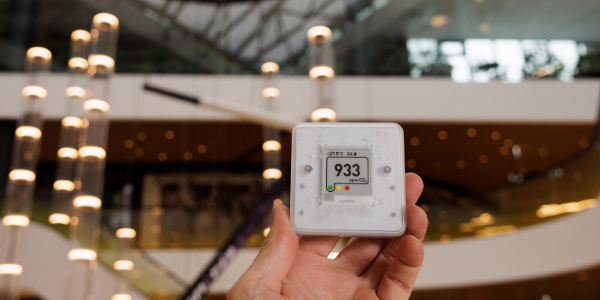For those who own and manage commercial buildings, it used to be that location was the mark of value of the property. The number one factor in pricing buildings was where it was in the country and its infrastructure. Now, with the overwhelming health concerns rippling around the globe, location, location, location has been replaced by the sophistication of the building management system (BMS).
The impact of COVID
This focus on health and wellbeing is something of a shift for manufacturers, designers, and installers of BMS products too. In recent years promotion of high-spec technology in commercial buildings has focused on energy efficiency. Buyers’ return on investment would be measured by carbon neutrality and reduction in utility bills. Indeed, a BMS installed to Class A standards could offer 30% more energy savings than one that meets Class C of the standard.
Now, with the intrusion of COVID-19, building managers have become more conscious of the air that is breathed and the significant impact it can have on health and wellbeing. Delivering demand-controlled ventilation puts those with a well-designed BMS ahead of the curve in welcoming team members back to the office after lockdown.
An ongoing trend
While the news on the vaccine has been nothing short of miraculous, the warnings from scientists are clear: it is only a matter of time before the next pandemic. So, while there may be hope on the horizon for business, as usual, the ongoing consequences will be felt by industry long into the future.
One such consequence could be an increase in legislative demands on business and the working environment. The Health and Safety Executive have already released guidance on how HSE will support duty holders in protecting workers during COVID and beyond. This guidance will likely turn to enforcement soon, and savvy business leaders are looking to get ahead of the curve with the right BMS managing the environment. The UK often shadows the trends in the US, where there has been a 30% rise in whistleblower complaints to the ombudsman for occupational health.
While COVID-19 may have been a driver for the increase in interest in building management systems, there has always been a need to manage wellbeing through control of the environment. For instance, higher than average exposure to CO2 can make a workforce drowsy – a ventilation system would improve productivity. The humidity of a building is a significant factor in the spread of viruses. Therefore, management of this humidity using a well-designed BMS could reduce the number of colds and flus that strike your workforce.
A welcome boost
While the pandemic and lockdown have been challenging for BMS designers, manufacturers, and installers, there is a silver lining. There is a demand for the right tools to provide the best working environment, safe for employees and managers alike.
Cube Controls designs and installs building management systems. If you want your BMS to protect your employees, we can help provide the product that works.




